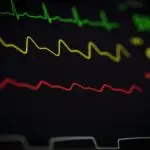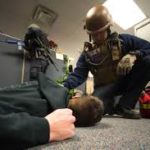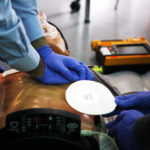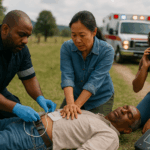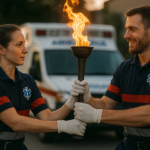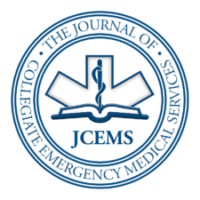Home Electronic Publications
Electronic Publications
Innovation in Collegiate Emergency Medical Services
The authors review potential uses of current and future innovations in EMS and discuss our Call for Papers for an upcoming special JCEMS edition.
Johns Hopkins Emergency Response Organization (HERO) lays the groundwork for inter-facility transport
Under the leadership of Christopher Wend (former Captain) and Leela Herbst (current Captain), HERO prepares for inter-facility transports.
Embry Riddle Aeronautical University Emergency Response Team hosts a multi-agency active shooter drill based...
Connor Black, the Assistant Chief of the Emergency Response Team (ERT) at Embry-Riddle Aeronautical University, sat down with the JCEMS news team to discuss...
Illinois Institute of Technology creates on-campus EMS organization with initial focus on community CPR/AED...
Current student Alexandra Montgomery leads the charge to develop a new campus EMS organization.
Marketing Your EMS Experience
Collegiate EMS providers should leverage their experience in EMS to demonstrate their qualifications for employment or graduate education.
Latest
Continue to the categoryInvestigating the Role of Public Assistance Programs in Responding to Cardiovascular Emergencies in Rural...
Download PDF (Available Soon)Author and Article Information ...
Training Student EMTs to Support Mobile Community Support Program
Download PDF (Available Soon)Author and Article Information ...
Pass The Torch to Decrease Healthcare Burnout
How can you reignite your passion for healthcare when you feel it burning out? The author explores this idea in this Perspectives & Opinions piece.


